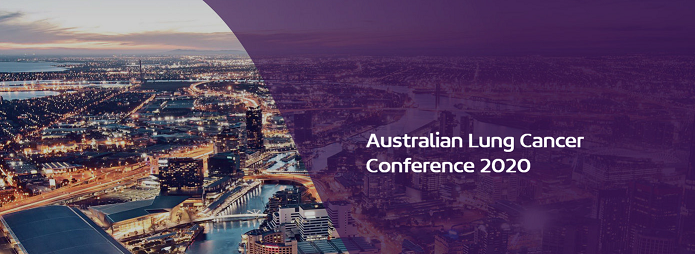
Report from Lung Foundation Australia website
Lung health experts gathered in Melbourne to welcome ‘A New Era of Hope for Lung Cancer’ as revolutionary treatments and better understanding of effective health delivery systems promise better health outcomes for people diagnosed with Australia’s deadliest cancer.
The health professionals and people affected by lung cancer attended the 2020 Australian Lung Cancer Conference, the largest conference to date, at the Melbourne Convention Centre from 19-21st February, where national and international lung cancer research was shared.
“Lung cancer research is progressing leaps and bounds. From tools to facilitate timely diagnosis, to breakthroughs in treatment and quality of care, we now have the information we need to drive great progress,” said Lung Foundation Australia CEO Mark Brooke.
“This is a time of real hope,” he said.
Research presented at the conference is helping to pave the way to progress:
Lung Cancer Screening: multiple studies on lung cancer screening provide guidance as to how Australia can roll out an effective National Screening Program and save lives by catching cancer earlier. The 20 per cent reduction in lung cancer deaths reported in screening trials is larger than any new treatment for lung cancer to date.
Quality in Care: results from the Victorian Lung Cancer Registry (VLCR) – Australia’s first state-wide initiative to measure and benchmark quality of care in newly diagnosed lung cancer patients – expose inequities between metropolitan and regional areas as well as public and private hospitals, and identify clear actionable targets for quality improvement. (see separate media release)
Treatment: standard-of-care first-line therapy for all patients with Non-small-cell lung carcinoma (NSCLC) could be about to change following the successful trial of the immunotherapy drug Pembrolizumab. NSCLC accounts for about 85 per cent of all lung cancers.
Smoking/vaping: the ongoing importance of public health measures addressing smoking uptake and quitting in Australia is reinforced with research suggesting that in 50 years’ time, given minimal disruptions to current initiation and cessation rates, 1 in 5 adult Australians will remain at elevated risk of smoking-related disease.
This year, the Australian Lung Cancer Conference joined forces with the Australasian Lung Cancer Trials Group Annual Scientific Meeting (ALTG-ASM) and the Australia and New Zealand Lung Cancer Nurses Forum (ANZ-LCNF) to unite the lung cancer community like never before.
Australasian Lung Cancer Trials Group (ALTG) President A/Prof Nick Pavlakis says he is excited for the ALTG ASM to be combined with the Lung Foundation Australia’s ALCC to bring together like-minded clinicians and researchers to work for a brighter future for lung cancer patients.
“ALTG is committed to continuing to design, conduct and analyse clinical trials that will ultimately lead to improvements in the diagnosis and management of lung cancer,” he said.
“The recent announcement from the Federal Government to fund our ground-breaking ASPiRATION project is a pivotal moment in lung cancer research in Australia. The application of precision medicine through the use of routine upfront comprehensive genomic profiling to match patients to targeted treatments, brings Australian lung cancer care to the forefront of modern technology with the potential to impact substantially on current practice.”
In 2019 the government approved a record number of lung cancer and lung disease treatments for listing on the Pharmaceutical Benefits Scheme and supported the first enquiry into a national lung cancer screening program.
Mr Brooke welcomed the innovative research developments presented at the conference and the important work happening in the lung cancer research space, saying it illustrates just how important investment in research is.
“These advances are the direct result of dollars invested in research. Research offers hope and it provides answers. Without it we will make no progress and so it is absolutely critical that investment is sustained,” he said.
However, he also reiterated that research is of little benefit to patients unless translated into policy and action.
“To move from ‘hope’ to ‘better health outcomes’ will take more than just information” he said.
“Despite being Australia’s biggest cancer killer and having the lowest five-year survival rate of the five most commonly diagnosed cancers, lung cancer receives only a fraction of the research funding of other cancers. We must continue to champion the need for increased support for lung cancer and ensure that the wonderful research progress we hear about today becomes a template for action that improves survival rates and quality of life.
“Scientific breakthroughs can take years to accomplish,” Mr Brooke added, “But every dollar makes a difference to the lives of those impacted.
“Together with our research partners and the support of the community we can change the future for lung cancer and give hope for a cure.”


